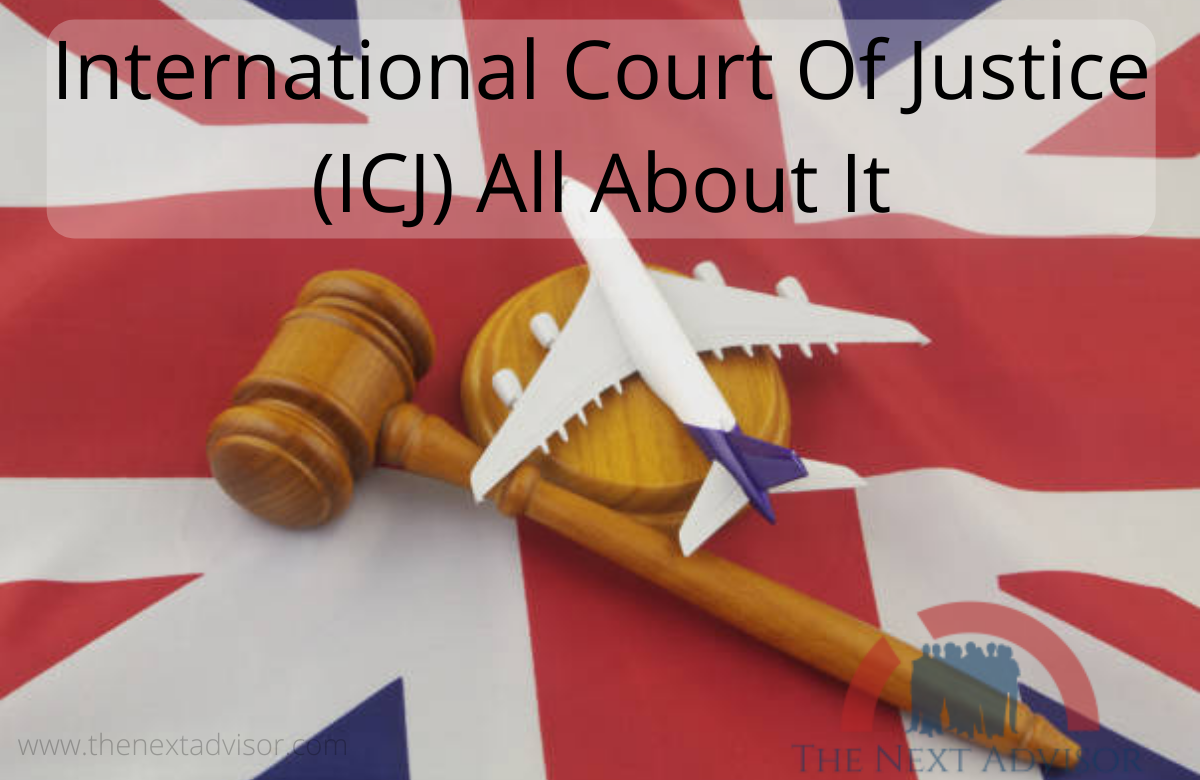After the matter of Kulbhushan Jadhav, the International Court of Justice (ICJ) came into the limelight in the world. The International court of justice was formed after the formation of the UNO in 1945, Who was established peace by hearing important decisions between many countries.
Perhaps this must have been the reason that the building would have been named Peace Palace, which is in The Hague of Netherlands, where the International Court of Justice is headquartered. The motive of this court is to establish peace by solving the conflicts that exist between countries. That is why the name of the headquarter of this court is Shanti Bhavan.
The International Court of Justice ( ICJ ) was established by the Charter of the United Nations in June 1945 and started functioning in April 1946. It is the principal judicial organ of the United Nations (UN). The International Court of Justice (ICJ) is headquartered at the Peace Palace in The Hague (Netherlands).
International Court is always in discussion about international matters. The International Court of Justice (ICJ) With six of the principal organs of the United Nations, it is the only organ that is not located in New York (United States) other five organs are in the Newyork. The session of the International Court of Justice (ICJ) is always open except on holidays. The United Nations bears the burden of administrative expenses of this Court.
There are 15 judges in the International Court of Justice, who are elected by the United Nations General Assembly and the Security Council for a nine-year term and can also be re-elected, in the third year five of these 15 judges can be re-elected. The main condition regarding the appointment of an International Court of Justice (ICJ) is that two judges cannot be elected from the same country.
Dalveer Bhandari is here as an Indian judge. Dalveer Bhandari has been re-elected to the ICJ in November 2017. For his re-election in the ICJ, there was a close contest between Bhandari and Christopher Greenwood of Britain, but Britain withdrew its candidate and Bhandari’s victory was confirmed.
Justice Bhandari will have a tenure of 9 years. Justice Bhandari got 183 votes out of 193 in the United Nations General Assembly, while all 15 votes went in favor of India in the Security Council. Separate voting was held for this election at the organization’s headquarters in New York.
Jurisdiction of the International Court of Justice (ICJ)
The function of the International Court of Justice (ICJ) is to settle legal disputes and to provide opinions on legal questions raised by authorized UN organs and specialized agencies. The Jurisdiction of the International Court of Justice has two special duties:
- it adjudicates legal disputes according to international law.
- adjudicates on disputes between two parties, and at the request of units of the United Nations, it gives an opinion.
Its official languages are English and French. Article 93 of the United Nations Charter states that all 193 members of the United Nations are entitled to justice from this court. Although the countries of the Jurisdiction of the International Court of Justice (ICJ) are not members of the United Nations, they can also appeal to this court to get justice.
HOW DOES INTERNATIONAL COURT WORK
The International Court of Justice has the power to make rules at its discretion. The judicial process of the Court is governed by the International Court of Justice Rules, 1978 which were amended on 29 September 2005. There is no permanent representative of any country in the International Court of Justice.
Countries usually contact the registrar through their foreign minister or through their ambassador to the Netherlands who provides representation to them in court through an agent. Before registering the case, the applicant has to give a written application based on the jurisdiction of the court and his claim.
The Respondent accepts the jurisdiction of the Court and files his written reply on the merits of the case. In this court, cases are heard in public until the order of the court is otherwise, that is, if the court wants, it can hear a case in a closed court also. All questions are decided by a majority of the judges. The Chairman has the right to cast a casting vote.
The decision of the court is final, it cannot be appealed but in some cases, it can be reconsidered. Recently, the case of Kulbhushan Yadav, filed by India, was heard in the International Court of Justice, in which the International Court of Justice ordered the Government of Pakistan that Kulbhushan should not be hanged until all options were considered.

























